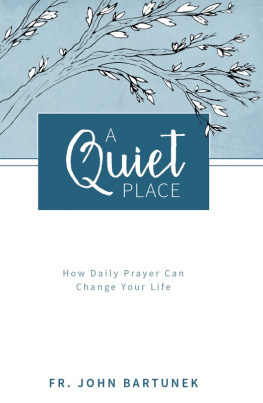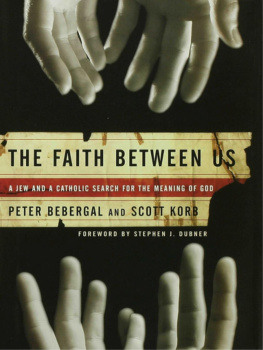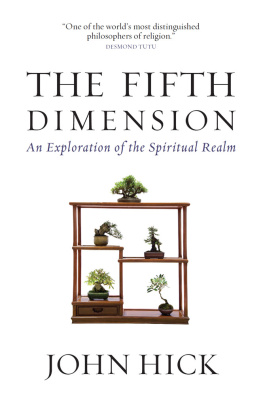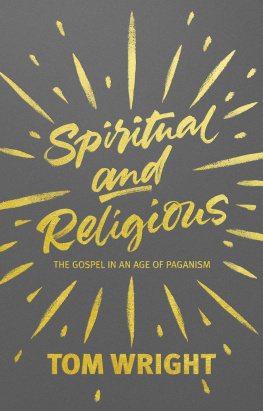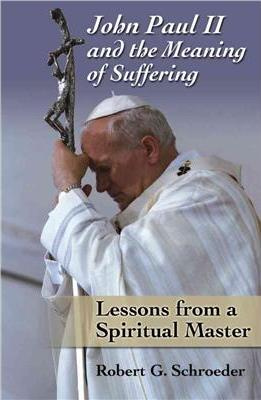John Bartunek - Spiritual but Not Religious: The Search for Meaning in a Material World
Here you can read online John Bartunek - Spiritual but Not Religious: The Search for Meaning in a Material World full text of the book (entire story) in english for free. Download pdf and epub, get meaning, cover and reviews about this ebook. year: 2019, publisher: TAN Books, genre: Religion. Description of the work, (preface) as well as reviews are available. Best literature library LitArk.com created for fans of good reading and offers a wide selection of genres:
Romance novel
Science fiction
Adventure
Detective
Science
History
Home and family
Prose
Art
Politics
Computer
Non-fiction
Religion
Business
Children
Humor
Choose a favorite category and find really read worthwhile books. Enjoy immersion in the world of imagination, feel the emotions of the characters or learn something new for yourself, make an fascinating discovery.

- Book:Spiritual but Not Religious: The Search for Meaning in a Material World
- Author:
- Publisher:TAN Books
- Genre:
- Year:2019
- Rating:5 / 5
- Favourites:Add to favourites
- Your mark:
- 100
- 1
- 2
- 3
- 4
- 5
Spiritual but Not Religious: The Search for Meaning in a Material World: summary, description and annotation
We offer to read an annotation, description, summary or preface (depends on what the author of the book "Spiritual but Not Religious: The Search for Meaning in a Material World" wrote himself). If you haven't found the necessary information about the book — write in the comments, we will try to find it.
Spiritual but Not Religious: The Search for Meaning in a Material World — read online for free the complete book (whole text) full work
Below is the text of the book, divided by pages. System saving the place of the last page read, allows you to conveniently read the book "Spiritual but Not Religious: The Search for Meaning in a Material World" online for free, without having to search again every time where you left off. Put a bookmark, and you can go to the page where you finished reading at any time.
Font size:
Interval:
Bookmark:
Spiritual but not Religious
NOT RELIGIOUS
The Search for Meaning in a Material World
John Bartunek, LC, SThD
TAN Books
Charlotte, North Carolina
Spiritual but not Religious 2019 John Bartunek
All rights reserved. With the exception of short excerpts used in critical review, no part of this work may be reproduced, transmitted, or stored in any form whatsoever without the prior written permission of the publisher.
Unless otherwise noted, Scripture quotations are from the Revised Standard Version of the BibleSecond Catholic Edition (Ignatius Edition), copyright 2006 National Council of the Churches of Christ in the United States of America. Used by permission. All rights reserved.
Cover design by Caroline K. Green
Cover artwork by lisima and agsandrew/Shutterstock
Library of Congress Control Number: 2019930595
ISBN: 978-1-5051-1355-6
Published in the United States by
TAN Books
PO Box 410487
Charlotte, NC 28241
www.TANBooks.com
Printed in the United States of America
Contents
I grew up in an atheist family. We werent militant atheists, but we never talked about God, prayed, or went to any kind of church. Well, I do remember going to a Christmas Eve service when I was four or five years old. And sometimes when I slept over at a friends house on a Saturday, I would tag along with his family when they went to church the next morning. But in my formative years, the realms of religion were an unknown galaxyI didnt know about them, and I didnt even know that I didnt know about them.
That changed when I was fourteen years old. I began attending a nondenominational church in the suburbs of Cleveland, Ohio, and I soon had a personal experience of God and became a believing Christian. So for me, religiongoing to church, learning and acknowledging dogmatic teaching, engaging in specific rituals with other believers, and intentionally following particular behavioral normshas always involved a personal choice and a spiritual experience.
During my college years, I met people who felt differently. They had grown up in religious households, but their religion had never felt spiritual. In fact, for many of them, the trappings of religion seemed to be an obstacle to real spiritual experience. They found spirituality outside of religion and in spite of religion. These friends sometimes described themselves as spiritual but not religious.
Ever since, I have often puzzled over that phrase, and that reality. My own journey eventually led me to enter the Catholic Church, follow a call to the priesthood, and consecrate my life to God in a religious order. Each step of the way, religion and spirituality have always gone hand-in-hand. And yet, throughout my fifteen years of priestly ministry, I have continued to meet people for whom being spiritual seems more important and more real than being religious. And I have also continued meeting people who were outwardly religious but clearly unspiritual.
In my opinion, both spiritual but not religious and religious but not spiritual are incomplete. Neither gives the human heart the meaning we all long for. This book is an attempt to explain why. It is also an attempt to help religious people live more spiritually and to help spiritual people discover the incomparable riches of authentic religion.
T he word museum comes from a Greek term meaning seat (or place) of the Muses. In ancient Greece, the Muses were nine goddesses, daughters of Zeus and Mnemosyne (goddess of memory). These Muses were the divine sources of inspiration for great artists. Using the word museum to refer to a place where we can study and contemplate great works of art illustrates the implicit connection between spirituality (inspiration) and religion (divine source of inspiration).
In fact, many of the greatest works in the worlds best-known museums are explicitly religious in their subject matter and their origin, from Egyptian tomb decorations to baroque crucifixion scenes. Yet no one would claim that museum visitors must be religious in order to appreciate these great works of art. Somehow, their aesthetic eloquence is sufficient unto itself. The gallery of the Muses, then, is a safe place to explore the mysterious connections and distinctions between what is religious and what is spiritual.
Impractical Value
A museum also happens to be a quintessentially human thing. Unlike a burger joint, it has no obvious practical purpose. In a burger joint, we can get food. We need food to stay healthy and alive. The practical purpose of a burger joint is undeniable. But what about a museum? The practical advantage gleaned from gazing at and thinking about a painting or a sculpture is less tangible. Some might even say there is no advantage. And yet, for more than a few centuries now, human beings have continued to pour immense amounts of time and money into the production, collection, and display of works of art.
The Detroit Institute of Arts, for example (I will be referring to many works in the DIA throughout these pages; I live nearby), ranks among the top six art museums in the United States. Its more than a hundred galleries host a collection whose net assets exceed $300 million. Its annual revenue in 2017 exceeded $55 million and covered its $40 million functional expenses.
Yet no one eats its paintings. No one drinks its sculptures. No one lives under its roof, and no one weaves clothing out of the documents in its art reference library. What is so valuable about something so impractical?
In 2017, a recently rediscovered painting (just one painting) by Leonardo da Vinci sold at an auction for over $450 million, more than the entire asset value of the Detroit Institute of Arts. That broke the previous record held by an abstract landscape painting from William de Kooning called Interchange, which had sold for $300 million. One single painting, bought for as much as a record-setting Powerball jackpot. Why?
A Matter of Fact
A great work of art is worth more than the material used to make it because it captures and communicatesand sometimes symbolizessomething more than mere matter. A great work of art is like a sacrament: it mysteriously makes present through its physicality something that transcends mere physics. This is why human beings make art; this is why humans delight in beauty; this is why humans laugh at stand-up comedy routines and cry at sad movies; we, too, are more than mere matter.
I have never seen a squirrel contemplating a Rembrandt. I have never seen a dolphin attempt to capture a seascape in oils or watercolors. The artsthe creation of things like paintings, sculptures, and even filmsis something uniquely human. Having food, clothing, and shelter is somehow not enough for us. Once we have supplied for our basic biological needs, we are still restless. This restlessness, this yearning for something beyond what is merely material, is the spark of spirituality. Every work of art is an expression both of the restlessness and of an insight or experience in which that restlessness was somehow recognized and relieved, even if only partially or temporarily. When we truly connect with a work of art, then, we are enriched by it in immaterial terms.
Surprised by Saint George
Have you ever been surprised in a museum? I have. In fact, the trajectory of my life was altered by a surprise encounter I had with a marble sculpture.
It was my junior year of college, and I was in adventure mode. I was in love with learning, with exploring and discovering. My history major and my universitys myriad overseas campuses pointed me toward a year of study abroad. I started out in Florence, Italy, the birthplace of the Renaissance. My art history class was touring the Bargello National Museum, the medieval city hall turned priceless sculpture haven. Our guide led us into the Donatello room, and as the rest of my classmates followed the professor, my eye caught a marble figure in the corner that completely arrested my attention and irresistibly drew me toward it.
Font size:
Interval:
Bookmark:
Similar books «Spiritual but Not Religious: The Search for Meaning in a Material World»
Look at similar books to Spiritual but Not Religious: The Search for Meaning in a Material World. We have selected literature similar in name and meaning in the hope of providing readers with more options to find new, interesting, not yet read works.
Discussion, reviews of the book Spiritual but Not Religious: The Search for Meaning in a Material World and just readers' own opinions. Leave your comments, write what you think about the work, its meaning or the main characters. Specify what exactly you liked and what you didn't like, and why you think so.

